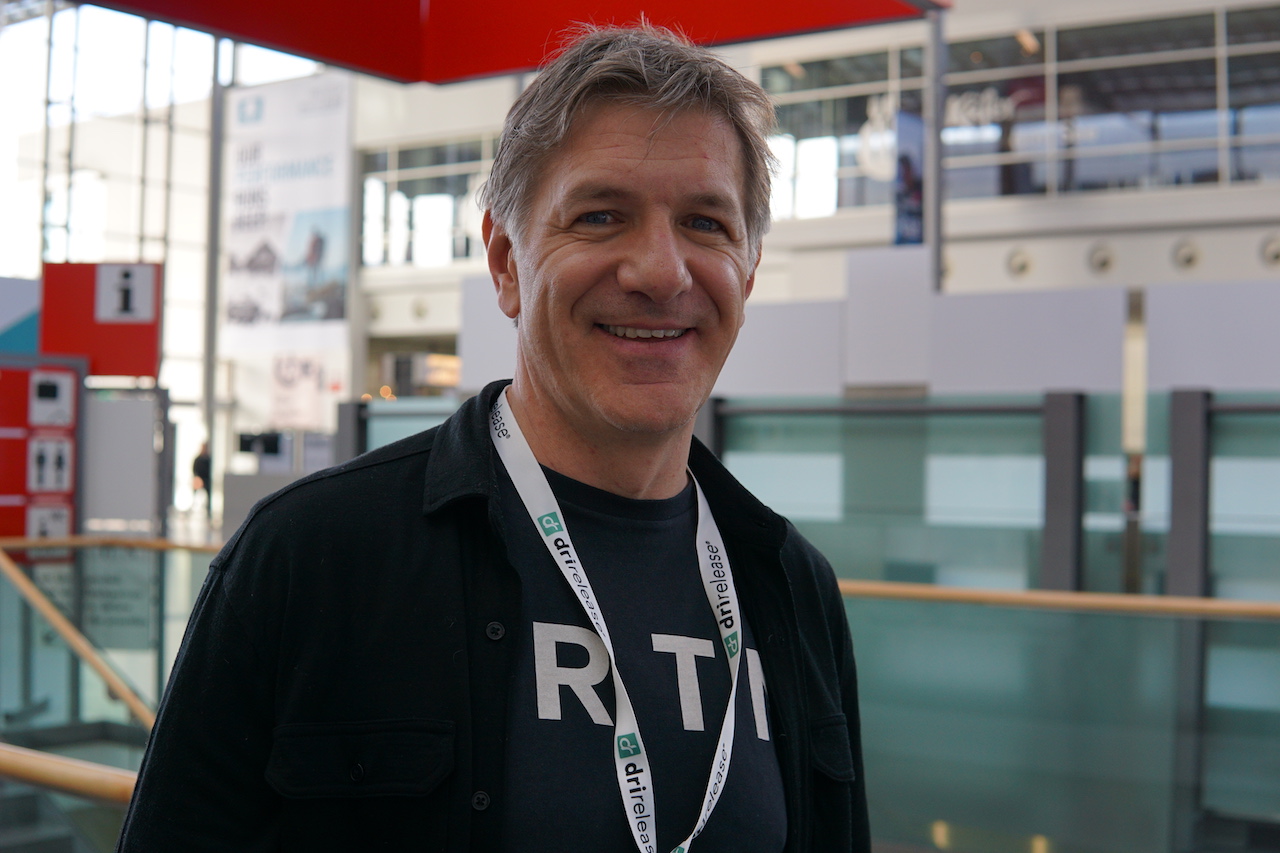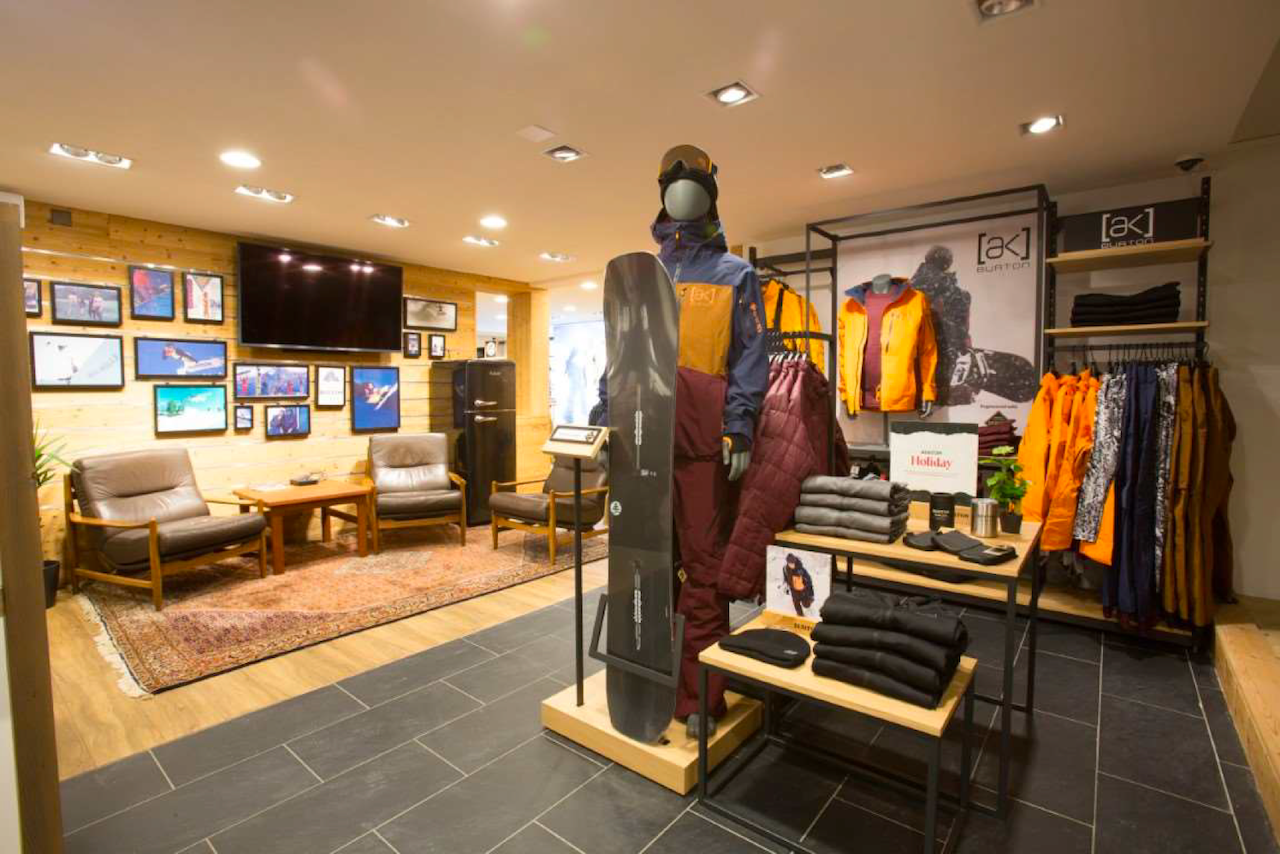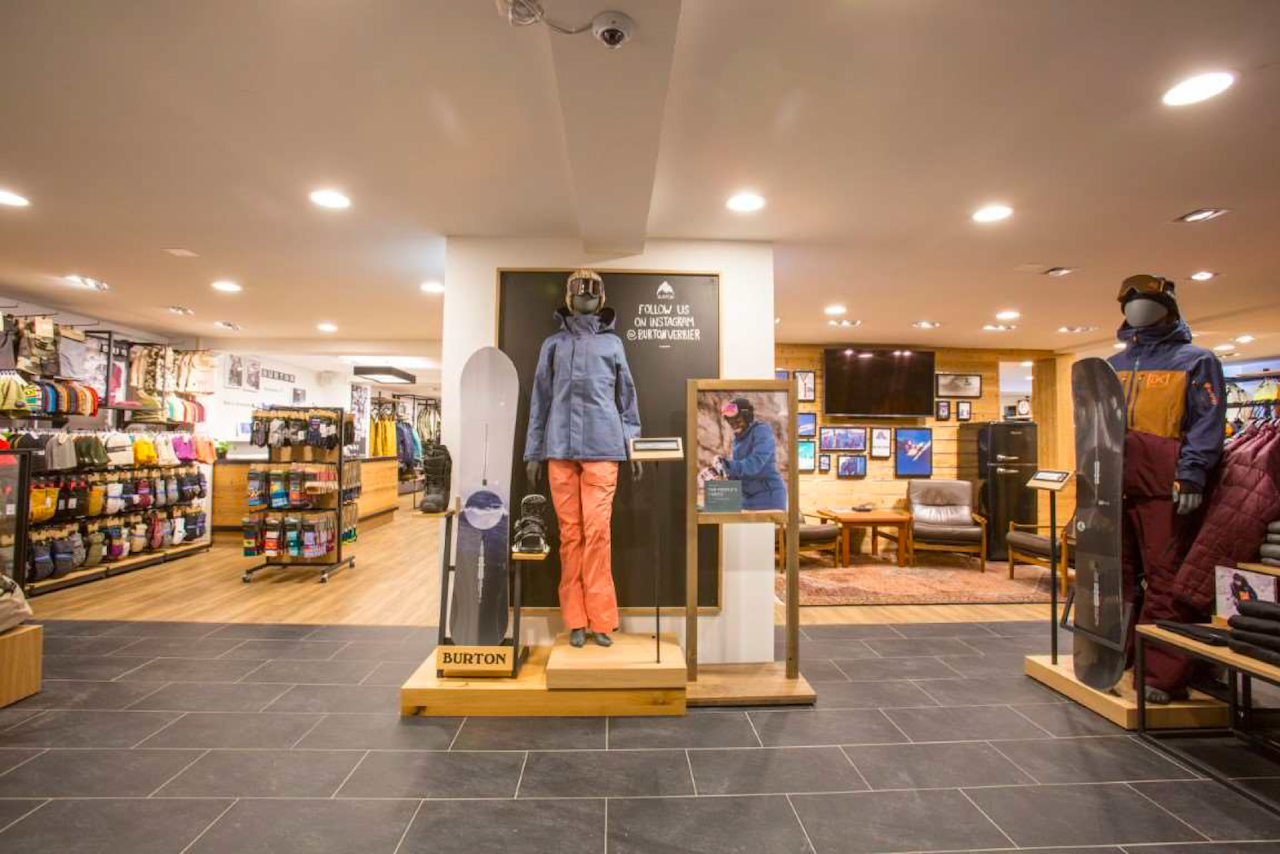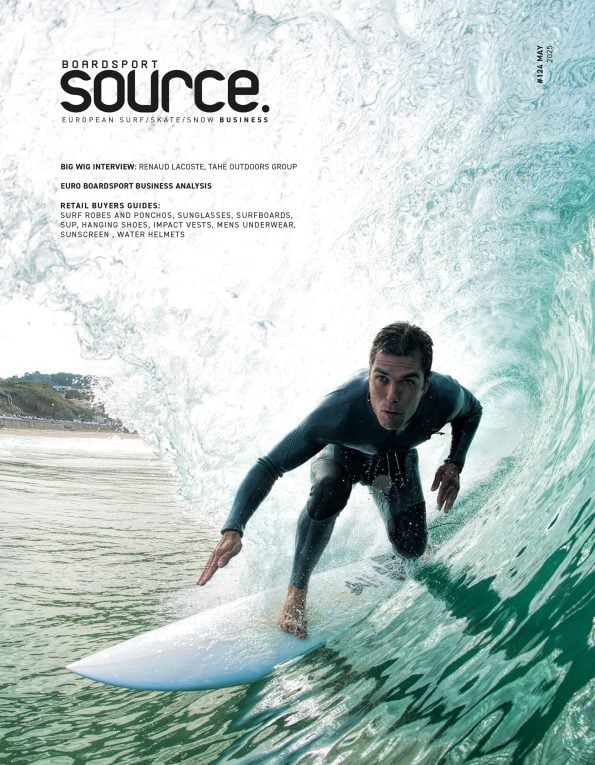
Burton’s Franck Waterlot Explains European Growth
Burton Attributes European Growth To Success Of Hub Concept & Narrowing Distribution, Resulting In Improved Wholesale Channel
We sat down with Burton VP of Sales and Marketing Europe, Franck Waterlot to catch up on the momentum the brand is carrying into 2020. Franck talks to us about the impressive rollout of their Hub strategy, where the brand provides touch points for the consumer in major cities, close to the mountains and how this combined with a “cleaning up of the house” has delivered targets ahead of plan. Franck explains how narrowing their distribution and putting the “right products in the right places” was difficult, but has ultimately cleaned up their wholesale business.
A fear for many snowboard retailers is by growing D2C sales brands cut out the wholesale channel, but Franck assures us that by growing the brand they have the wholesale channel at the heart of what they do – and figures represent this sentiment.
Franck also explains the opening of their first ever 100% owned in-resort store – Verbier, and also reveals plans for their next Hub, due to open in Stockholm in August.
Interview by SOURCE Editor, Harry Mitchell Thompson.

Burton’s Franck Waterlot. Photo HMT.
What’s going on at Burton?
We’re rolling out what we starting to do three/four years ago, in terms of strategy and brand development in Europe.
We’re progressing and accelerating our key initiatives; growing through being focused on the end consumer. We’re also growing our D2C channel, but not against our wholesale channel, we’re instead using D2C to support the wholesale channel and to tell more and better stories to our end consumer.
Our learnings, experiences and access gained through these Hubs show we’ve had success with this concept in Switzerland and Germany where we have D2C, wholesale, showroom and our own team in the same place. It’s been very successful, and we will be doing the same in Scandinavia, which is our next territory we want to invest in and develop.
We are about to sign a lease for a store in Stockholm and we are planning to open that place by August/ September 2020, with the same approach again of having a home, a roof under where we can activate the brand and product stories, our brand story and be better at connecting with the local community.
You say the Zurich and Munich Hubs have been successful. What do you measure the success by?
Our stores’ performances. We are around one year ahead of our plan in net sales and profitability of the stores. In general, you plan to lose money the first three to four years when opening a store in such a premium location in big cities. We are lucky and fortunate enough to be ahead of the curve.
That’s one KPI showing that we’re successful, we’re also successful with our Ecomm business in these countries. The Ecomm business is driven by the way the brand is demanded in the markets and our Hubs and our stores are growing the demand for the brand and it shows in our Ecomm performances.
Last but not least, our wholesale channel is also growing again, which for me, is the best achievement, the main achievement. We don’t do it just for ourselves, but the wholesale retailers are also benefiting from the growth of the brand.
And why do you think that wholesale channel is continuing to improve?
We did our homework. We had to clean up the house. We were widely distributed, sometimes too much. Not necessarily with the right product at the right place. So we did a lot of clean-up jobs in terms of re-segmenting distribution.

New Verbier Store
When did you do this?
The last two to three years. Especially in Germany. It’s been painful because we had to cut some not so good business, but now we are benefiting from a cleaner distribution and a better brand experience at point of sale at wholesale. And the demand that is growing in the awareness and the equity of the brand is getting better and better. Thanks to all the things we are able to do, having this Hub, this physical store in the city.
What special initiatives are you running with wholesale partners?
We align our go-to market plans. Whatever we do, we tell our wholesale partners; this is the month of AK, this month it’s Step On, etc. We align our campaigns and we allow them to benefit as much as possible so that we have scalability in the investments we make.
For example, we are running our ‘AK Experience’ series of events and we are inviting retailers to invite consumers and they will tell us about the experience and so on and so forth.
Can explain a bit more about the AK Experience?
The AK Experience is about supporting the AK line first of all and supporting our presence and our stories around freeriding. As its name suggests, ‘Experience’, it’s about going out together for a couple of days, riding off piste with guides, testing out product on the mountains, in powder in a true core Burton experience.
Which European market is your strongest performer in absolute value and in growth?
It’s Germany in value and actually in growth as well. We put it down to the focus we had over the last few years on this market with a new team and a new approach when it comes to brand activations at the Hub. The Hub experiences have an impact wave by wave across Munich, Bavaria, and Germany.
And you just opened a new store in Verbier as well. Which I understand is your first in-resort store that you fully own?
Absolutely. It’s the first time we’ve opened and operated our own store in resort. We’ve had a store in Laax for a few years, so we were covered in terms of brick and mortar presence in the German speaking side of Switzerland. We opened a partner store in Lausanne and we now have this one in Verbier so we are covered with two stores in the German speaking side, two stores in the French speaking side and now one we own in Verbier. This is now a key focus resort and we want to learn more about the resort’s business, the seasonality of the business; rental, demo, service to the rider etc.
This is really more than just about selling more product. It’s really about having a spot, a house, a safe house where we can service riders; whatever brand they ride, it’s really about being at the heart of where the snowboard action happens and especially this freeride Mecca where we can deliver our service and our offering.
And you said it’s been well received?
Very well. It’s only six weeks – we opened in mid-December – but the first weeks in terms of business performance have been very promising. Even though the plan was a crystal ball exercise with there being no historical data, we are on plan and have been very well received by the local community.
We are already learning little details. For instance, spare parts; Wwen servicing riders there’s a difference between city consumers and riders on the mountain. These guys break their straps, toe buckles etc and we need to have more spare parts to offer to people in resort. These are things we don’t necessarily need to have in Zurich or in Munich because we are in the city. So we are learning these little details.
What’s your approach to multi-seasonality? What is Burton in the summertime?
We’re not a summer brand, obviously, and we are not here to be a summer brand, but we’re trying to grow what we call the shoulder season. Being better as long as possible until the very end of the snow season. For instance, we don’t discount our hard goods and even our soft goods until mid-February. We don’t discount our winter products, even if most retailers and distributions are on sale. We keep on supplying the demand throughout the season until late April, beginning of May. And we make sure that we have the availability and the service available until the very end of the winter, which is not necessarily the case for most of our wholesale retailers, who normally switch to a spring/summer offer.
We want to expand longer and deeper into the winter season and we also want to be better in Fall with some more versatile products. We’re not here to sell tank tops, boardshorts and flip flops and this is not the plan. But being better, longer into the season into splitboarding, into freeriding and earlier in the season into more versatile products you can wear for hiking, camping, mountain biking. This is how we want to play our shoulder season games.
From a four-six month business, we want to expand to the nine month business.

New Verbier Store
How has the passing of Jake affected the company?
It’s been a shock, obviously. It’s very sad news, but on the other hand, there’s a very strong leadership team in Burton, both Europe and in the U.S. The business is 100% under control. We have the right people in the right positions with a very clear strategy, as I said earlier. We just keep on executing the strategy we introduced three/four years ago. There’s no turbulence, there’s no doubts in the ability of this team, brand and company to keep on moving despite the passing away of its founder and owner. There’s been no disruptions in terms of leadership. We know what we have to do.
What’s the timeline on the Scandinavian Hub?
The store should be open by August 2020 this year. So we are reorganizing our sales organization over there. We are going in-house, we have an agent who we turned into an in-house account manager. We are searching for a territory manager as we speak to overarch the leadership and the organization of the foreign market based out of Stockholm, out of the Hub and we are planning and organizing our marketing investments to grow the brand again over there.
We had a really cool activation planned as a preview to the store opening in Stockholm, but unfortunately we had to cancel it last week because of a lack of snow. So we’ll run an on snow activation during the next three months to reintroduce Burton and say, “Hey, we’re coming back to town,” a sort of popup in partnership with Ski Star – the main resort player in Scandinavia. They have their own six resorts, including one in Stockholm on the hill.
But it’s not only the opening of the store and Hub, it’s the complete revamp and the reorganization of sales, the network and the team we have over there. Again, it’s bringing what we made in Germany two/three years ago to the next level in a new territory.
Please recap all current Hubs you operate in Europe.
Innsbruck was the first as this is where we have our headquarters, our office and our store. We weren’t treating it like a Hub in terms of activations and organization, but actually Innsbruck was the first. By doing Zurich and Munich successfully, we’ve now also turned Innsbruck into a real Hub too. We actually just rebuilt our building’s entrance in Innsbruck. There used to be an entrance for the offices and an entrance for the store, but we’ve combined the two. Now, when you come into the building you either go to the office and talk to managers and the sales organization, or you go to the store, but it’s all one Hub.
We also opened our second Innsbruck store last winter. So we have two stores in Innsbruck now. Zurich was the pilot of the concept, then Munich, Innsbruck, and Stockholm being the next one.
London, Paris next?
No, they’re too far away from the mountains, too much like a spring/summer business destination. There’s many other cities to grow and to open and to develop all areas.
So the plan is to keep rolling out the Hub concept?
Yes, we have plenty of opportunities around the Alps – within 200KMs – to grow the brand’s presence and be stronger where we are already strong instead of going into the wild, wild west, like a Paris, London or Berlin. Maybe one day. Look at The North Face, it took them 10 years to open stores away from the mountain as a mountaineering brand to being a leading brand in London and Paris and Milan. So never say never.






